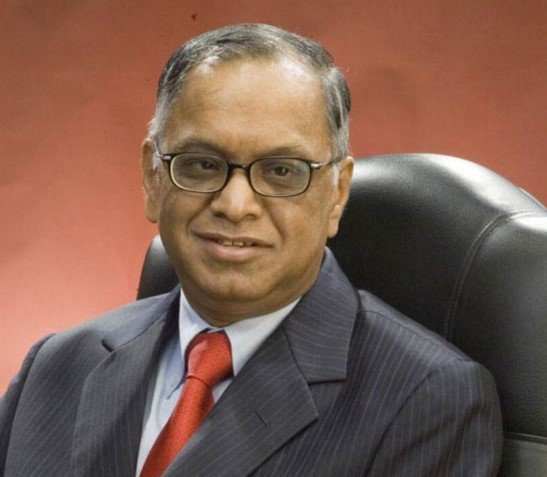In the latest corporate news today, Infosys co-founder Narayana Murthy is making waves with his defense of the 70-hour workweek philosophy. The business icon, known for his pivotal role in the growth of Infosys, remarked on India’s vast workforce, stating that “800 million Indians get free ration” — a comment reflecting his perspective on the work ethic and broader socio-economic realities. As the tech world and corporate giants continue to face questions about work culture, Murthy’s views are sparking a wider debate on employee expectations, productivity, and the balancing act between personal life and career.
Infosys Co-Founder Defends Workweek Philosophy
Narayana Murthy’s defense of a 70-hour workweek philosophy has raised eyebrows across India’s business community. Known for his role in building Infosys into one of India’s most successful tech companies, Murthy believes that long hours are often necessary for achieving professional success. In his comments, he emphasized that many in India still struggle with basic necessities, making it crucial for a select few to push the limits in the professional realm.

Murthy’s comments come amid growing discussions on work-life balance, especially in a world where tech giants and startups are increasingly focusing on employee well-being. While companies in the West push for shorter workweeks, Murthy’s defense of rigorous work ethics provides an interesting juxtaposition.
- Long Hours for Success: Murthy suggests that dedication and long hours are essential for achieving personal and business success.
- The Social Reality: Reflecting on socio-economic conditions, he reminds audiences that millions of Indians still rely on government support to meet their basic needs, underlining the importance of hard work in creating opportunities.
This has reignited debates in India and globally about the pressures of work culture, especially in tech industries where burnout is often discussed.
Tesla’s Musk and Security Concerns
In other corporate news, Elon Musk’s SpaceX has sparked interest due to its policies surrounding security clearances. Although Musk is the CEO of the aerospace company, he doesn’t have access to some of SpaceX’s highest-level government secrets. This decision stems from concerns over his public persona, including his controversial interactions with foreign officials and previous substance-related issues. While SpaceX is undeniably a leader in space exploration, this move underlines the delicate balance of corporate leadership and national security concerns.
TikTok Becomes a Mainstream News Source
TikTok, long regarded as a platform for viral trends, is now emerging as a dominant news source for younger audiences. Major media outlets, slow to join the app, are now seeking to capture the attention of the younger demographic who rely on TikTok for up-to-the-minute news. As legacy media outlets experiment with adapting to this new format, TikTok’s influence in reshaping the way news is consumed cannot be ignored. The platform’s rise signals a significant shift in the media industry, urging traditional outlets to innovate or risk losing relevance.
Mukesh Ambani and Gautam Adani Drop Out of Bloomberg’s $100 Billion Club
In the financial world, two of India’s wealthiest businessmen, Mukesh Ambani and Gautam Adani, have dropped out of Bloomberg’s prestigious $100 billion club. Both have faced considerable challenges in their businesses. Ambani’s Reliance Industries is grappling with slowing growth and increasing debt, while Adani’s empire is currently under scrutiny due to an ongoing US investigation. Their exit marks a dramatic shift in the landscape of India’s business elite and the broader global financial environment.
- Ambani’s Reliance: Facing slow growth and rising debt concerns, Reliance is struggling to maintain its dominant position in the Indian market.
- Adani’s Troubles: With a US probe into his companies, Adani’s once-unshakable empire is facing significant uncertainty.
Shriram Finance’s Branding Push
Shriram Finance, one of India’s top financial services companies, has recently launched a brand campaign featuring cricket legend Rahul Dravid. This marks the company’s first major advertising push, aimed at solidifying its brand identity as a trusted name in financial services. CEO Venkatraman stressed that trust and credentials are key in their sector, and their partnership with Dravid is meant to showcase the company’s strong values and commitment to customer service.
- Rahul Dravid’s Endorsement: The cricket legend’s association with Shriram Finance is expected to bolster the company’s image in the competitive financial services market.
- Trust at the Core: With a focus on reliability, the brand aims to reassure consumers of its stability and integrity.
